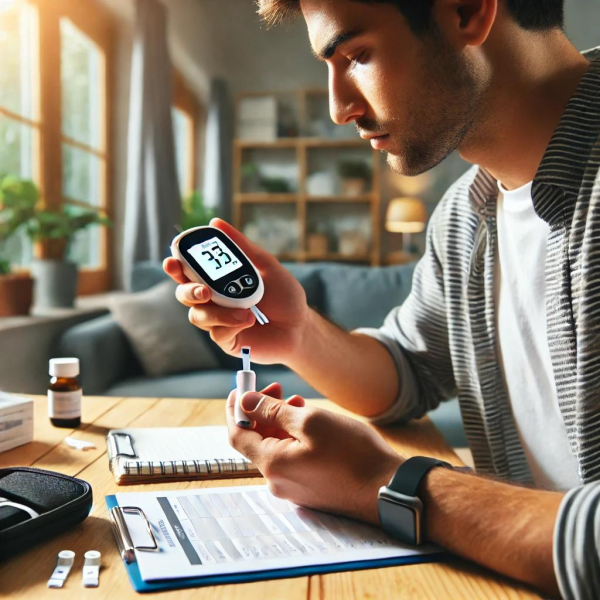Low Blood Sugar Symptoms
Understanding Low Blood Sugar Symptoms

What Is Low Blood Sugar?
Low blood sugar, also known as hypoglycemia, occurs when your blood glucose levels fall below the normal range. It can cause various symptoms that require immediate attention to prevent further complications. Hypoglycemia is commonly associated with diabetes management but can also occur in individuals without diabetes due to various factors such as prolonged fasting, excessive alcohol consumption, or certain medical conditions.

Symptoms of Low Blood Sugar
- Shakiness: A sudden feeling of being shaky or trembling.
- Sweating: Excessive sweating, often unrelated to physical activity.
- Dizziness: Feeling lightheaded or dizzy.
- Hunger: An intense and sudden feeling of hunger.
- Confusion: Difficulty concentrating or thinking clearly.
- Irritability: Becoming easily irritated or anxious.
- Weakness: Feeling unusually weak or fatigued.
- Blurred Vision: Experiencing blurred or impaired vision.
- Heart Palpitations: Rapid or irregular heartbeat.
- Seizures: Severe hypoglycemia can lead to seizures or loss of consciousness.
Managing Low Blood Sugar
Immediate Treatments
If you experience symptoms of low blood sugar, immediate action is required to raise your blood glucose levels. Here are some quick treatments:
- Glucose Tablets or Gel: Taking glucose tablets or gel can quickly raise blood sugar levels.
- Sugary Foods or Drinks: Consuming foods or drinks high in sugar, such as fruit juice, regular soda, or candy.
- Honey or Sugar: Taking a spoonful of honey or sugar can help increase blood glucose levels rapidly.
Long-Term Management
Long-term management of low blood sugar involves understanding the underlying cause and making necessary lifestyle adjustments:
- Monitor Blood Sugar Levels: Regularly checking your blood sugar levels can help you identify and manage hypoglycemia.
- Balanced Diet: Eating a balanced diet with regular meals and snacks can help maintain stable blood sugar levels.
- Medication Management: If you have diabetes, work with your healthcare provider to adjust your medications as needed to prevent hypoglycemia.
- Exercise Safely: Be mindful of your blood sugar levels before, during, and after exercise to avoid hypoglycemia.
- Emergency Plan: Have a plan in place for managing low blood sugar, including carrying fast-acting carbohydrates with you at all times.
Our Approach to Low Blood Sugar Treatment
Comprehensive Assessment
During your initial visit, our experienced healthcare professionals will conduct a thorough assessment to understand your medical history, current health status, and specific needs. This may include blood tests, a review of your dietary habits, and an evaluation of your current medications.
Personalized Treatment Plan
Based on your assessment, we will develop a personalized treatment plan tailored to your unique needs. This plan may include dietary recommendations, medication adjustments, and strategies for managing hypoglycemia.
Ongoing Support and Monitoring
We provide continuous support and monitoring to ensure your treatment plan is effective. Regular follow-up appointments and consultations help us track your progress, make necessary adjustments, and provide guidance to manage your condition effectively.

Why Choose Us for Hypoglycemia Management?
- Expertise and Experience: Our team of skilled healthcare professionals specializes in diabetes and hypoglycemia management, ensuring you receive the best care possible.
- Patient-Centered Care: Your comfort and well-being are our top priorities. We strive to provide personalized care that addresses your specific needs and concerns.
- Advanced Technology: We use the latest medical technology and equipment to provide accurate diagnoses and effective treatments.
- Comprehensive Services: In addition to hypoglycemia treatment, we offer a wide range of diabetes care services to support your overall health.
If you or a loved one is experiencing symptoms of low blood sugar, seek a consultation with our experienced healthcare professionals. Our team is here to help you achieve stable blood sugar levels and improve your quality of life.
F.A.Q

High blood sugar, or hyperglycemia, can be caused by various factors, including:
- Insufficient insulin production or usage
- Consuming high-sugar or high-carbohydrate foods
- Lack of physical activity
- Illness or infection
- Stress
- Certain medications
Common symptoms of high blood sugar include:
- Frequent urination
- Increased thirst
- Fatigue
- Blurred vision
- Headaches
- Unintended weight loss
- Slow-healing wounds
- Recurring infections
- Dry mouth
- Shortness of breath
High blood sugar is typically diagnosed through blood tests such as:
- Fasting blood glucose test
- A1C test (measures average blood glucose levels over the past 2-3 months)
- Random blood glucose test
If you experience symptoms of high blood sugar, you should:
- Check your blood glucose levels if you have a glucose meter
- Drink water to stay hydrated
- Avoid sugary foods and drinks
- Contact your healthcare provider for advice and potential medication adjustments
Yes, if left untreated, high blood sugar can lead to serious health complications, including:
- Diabetic ketoacidosis (DKA) in individuals with type 1 diabetes
- Hyperosmolar hyperglycemic state (HHS) in individuals with type 2 diabetes
- Long-term complications such as cardiovascular disease, nerve damage, kidney damage, and eye damage
